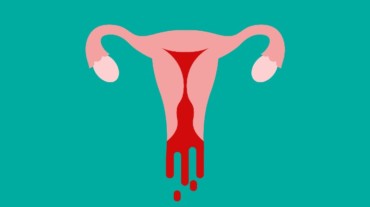
Women don’t consider their health of prime importance, which can lead to aggravation of existing health problems. Hence, it is crucial to keep an eye out for basic signs that can help them prevent an impending disease or health scare, especially when it comes to gynaecological issues.
Listed below are five essentials for women to look out for that can keep their reproductive health in check:
Any intermenstrual bleeding or post coital bleeding should raise a concern especially in perimenopausal age. One must monitor irregular periods or bleeding in between cycles that could indicate hormonal imbalance or other underlying diseases.
Young women must look out for polycystic ovary syndrome (PCOS) that causes menstrual irregularities, cosmetology issues such as acne, pigmentation, thinning or loss of hair, hirsutism i.e. dark or coarse hair growth on the chin, chest and weight issues. PCOS is one of the most common reasons for infertility in women of child-bearing age, due to anovulation (absence of ovulation) or irregular ovulation. Painful periods or heavy bleeding is yet another important reason to see your doctor to rule out fibroids, endometriosis or cysts present in the ovaries.

Infections of the genital tract such as urogenital or urinary tract infections (UTIs) that affect the urinary system are the most common types of infections. Women who are sexually active, post-menopausal due to declining estrogen levels or suffer from diabetes are more susceptible to UTIs. Another major cause is hygiene levels, due to which bacteria enters inside the urinary tract.
Pelvic inflammatory disease (PID) and sexually transmitted diseases (STDs) are other forms of common infections that could be passed on through sexual contact. Some of them are chlamydia, genital herpes, syphilis, and gonorrhoea. You could also experience leucorrhoea or abnormal vaginal discharge, if it is foul smelling, has a thick curdy consistency or is associated with rash and itching.
Vaccinations prevent women from infection risks and cancers, and thus must be taken at the right time. HPV vaccine or cervical cancer vaccinations must be taken by women at a young age preferably, as early as after nine years of age, and it is best when given before they become sexually active. Rubella or the MMR vaccine immunizes you against infections like measles, mumps, and rubella, and must be taken prior to planning a pregnancy.
The chicken pox or varicella vaccine is yet another important vaccination that can prevent congenital varicella syndrome in your baby, and hence must be taken prior to conception. The hepatitis B vaccine and the influenza/ flu shot is also recommended to be taken by women, especially if they are planning a pregnancy. Conjugate typhoid vaccine must also be added to the list. COVID-19 vaccine is strongly recommended, whenever available.

The most common cancers that affect women are breast and cervical cancers, followed by cancers of other reproductive organs. Breast cancer is known to be one of the leading causes of death in women, which could be easily prevented by a simple monthly self-examination.
If you detect any lumps or changes in your breast, one must visit your healthcare provider immediately. Self-exams must be done preferably post your period every month. While you do your monthly self-exams, it is also critical to get a clinical check-up done by an experienced professional, at least once a year. Mammography or mammograms are also recommended, depending on your age and your current health requirements. All women who are sexually active should get pelvic exams and sonograms. Regular HPV screening and pap smears are highly recommended to check for precancers or cervical cancers.
Select Topics of your interest and let us customize your feed.
PERSONALISE NOWLast but not the least, the most important step is to ensure that you cover all the above when you visit your gynaecologist. Generally, women visit gynaecologists, only if they plan to have a baby or they notice some health concerns that need immediate attention.
However, it is important to pay a visit at least once a year to make sure your reproductive health receives due attention. Regular and early visits can prove to be helpful in your journey towards positive health, clearing myths and doubts if any, and to top it all, prevention of bigger health issues. Few pathological tests are crucial and serve as a wholesome combination in screenings and detection of diseases of the reproductive organs.
This sums up the quick ways to prevent reproductive health issues as well as curb underlying and existing health conditions from aggravating further.